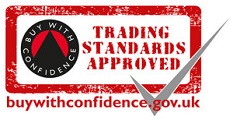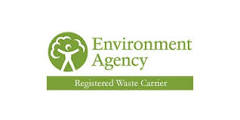Contact us - Find us
Unit 28b, HTM Business Park, Abergele Road, Rhuddlan, North Wales - LL18 5UZ
01745 430 530
HSE 274 defines mandatory legal requirements for Landlords to undertake regarding risk control of Legionaires disease
What is Legionella?
Legionnaires' disease is a potentially fatal form of pneumonia caused by the inhalation of small droplets of contaminated water containing Legionella. All man-made hot and cold water systems are likely to provide an environment where Legionella can grow. Where conditions are favourable (ie suitable growth temperature range; water droplets (aerosols) produced and dispersed; water stored and/or recirculated; some 'food' for the organism to grow such as rust, sludge, scale, biofilm etc) then the bacteria may multiply thus increasing the risk of exposure. It is a simple fact that the organism will colonise both large and small systems so both require risks to be managed effectively.
Legionella bacteria can be found in almost all water systems including Spa Baths, Domestic Showers, Hot & Cold Water Systems etc. - is your property or establishment covered?
Under the new Approved Code of Practice (ACOP) it is the responsibility of all proprietors, managers, Private Landlords heads of home, head teachers etc., to ensure they have a suitable and sufficient Risk Assessment procedure carried out on the properties for which they are responsible.
There are legal duties placed on Landlords by the Health and Safety at Work Act 1974. To carry out a risk assessment, the Responsible person (Landlords) must be ‘competent’, which is defined.
Since 2013, there has been a lot of publicity from companies suggesting its now a legal requirement to have a legionnaires certificate for rented property. The cost of these certificates are around three figures.
What your tenant needs to know
Tenants should be advised of any control measures put in place that should be maintained eg not to adjust the temperature setting of the calorifier, to regularly clean showerheads and tenants should inform the landlord if the hot water is not heating properly or there are any other problems with the system so that appropriate action can be taken.
Where showers are installed, these have the means of creating and dispersing water droplets (aerosols) which may be inhaled causing a foreseeable risk of exposure to Legionella. If used regularly (as in the majority of most domestic settings) the risks are reduced but in any case, tenants should be advised to regularly clean and disinfect showerheads. Instantaneous electric showers pose less of a risk as they are generally cold water-fed and heat only small volumes of water during operation.
At JT Cox Limited we have trained assessors who can provide you with Peace of Mind for you as a Landlord or Letting Agent and give you a full risk assessment log which is specific to each property. We make clear recommendations and if required, we can carry out a full controlled disinfection and cleaning service.
If you are interested in discussing further with one of our assessors please contact our office on 01745 430530











